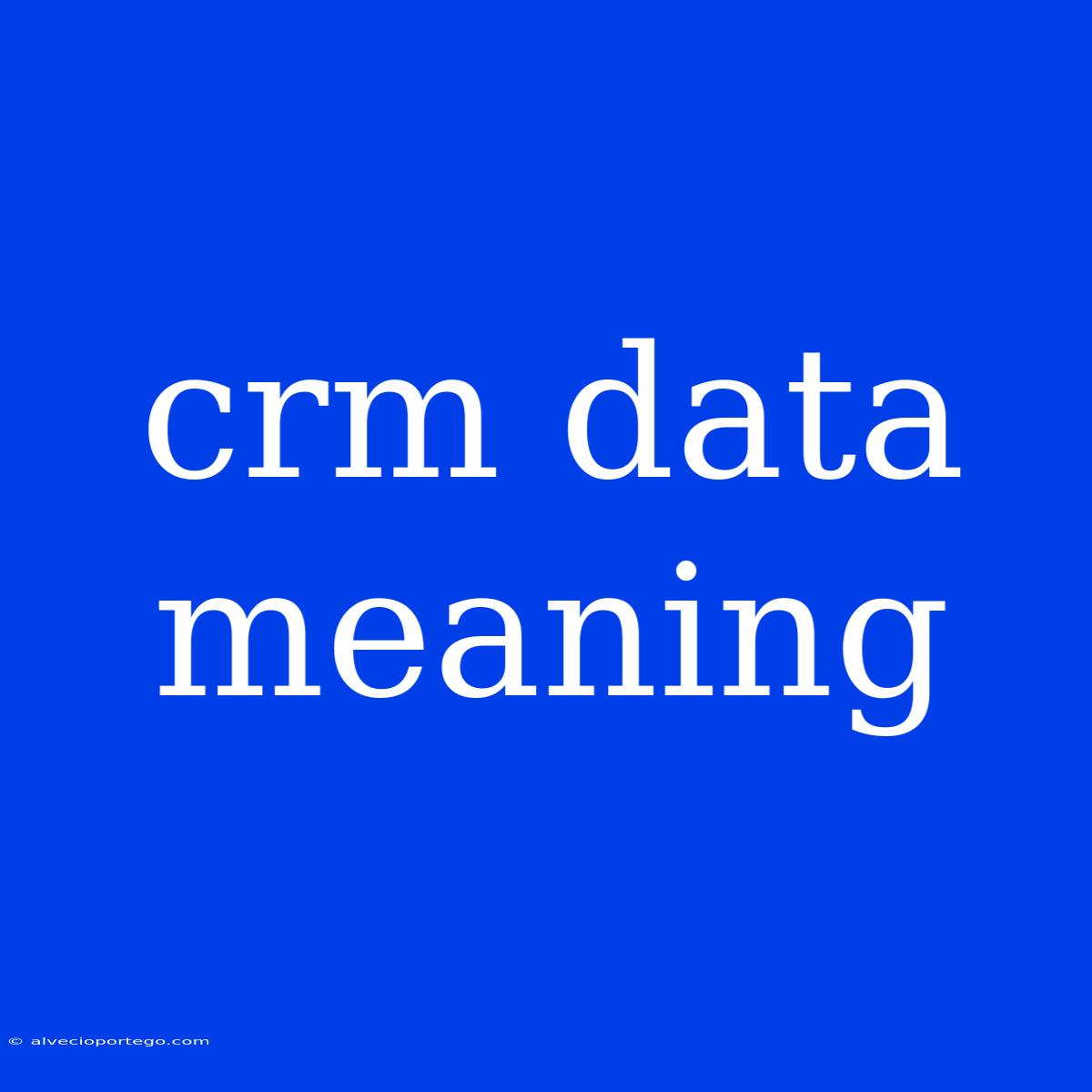Understanding CRM Data: The Lifeblood of Customer Relationships
CRM Data is the heart of any successful Customer Relationship Management (CRM) system. It's not just raw information; it's the accumulated knowledge about your customers that drives better engagement, targeted marketing, and ultimately, stronger business growth.
What is CRM Data?
In simple terms, CRM data is any information collected about your customers and potential customers. This can include:
- Basic information: Name, contact details, company, job title, website
- Engagement data: Website visits, email opens, social media interactions, downloads
- Purchase history: Products bought, order dates, purchase frequency, average order value
- Customer feedback: Surveys, reviews, social media mentions, support tickets
- Demographics: Age, location, interests, hobbies, education, income
Why is CRM Data Important?
Understanding and utilizing CRM data provides a wealth of benefits for your business:
1. Personalized Customer Experiences:
By leveraging individual customer data, you can personalize marketing campaigns, offer targeted recommendations, and create a more individual and relevant customer experience.
2. Effective Marketing and Sales Strategies: Analyzing customer data allows you to segment audiences, identify your most valuable customers, and tailor marketing messages for maximum impact. This leads to higher conversion rates and improved customer acquisition.
3. Enhanced Customer Service: CRM data empowers your customer support team to resolve issues faster, provide tailored solutions, and build stronger relationships.
4. Data-Driven Insights: By analyzing customer data trends, you can identify potential opportunities and challenges, predict customer behavior, and make informed decisions about product development, pricing, and marketing strategies.
5. Increased Customer Loyalty: When you understand your customers and treat them as individuals, you cultivate a sense of value and loyalty.
Types of CRM Data:
1. Transactional Data: Information directly related to customer interactions, including purchases, website activity, and support requests.
2. Demographic Data: Basic information about your customers, such as age, location, and income.
3. Behavioral Data: Records of customer activities, like website browsing history, email engagement, and social media interactions.
4. Qualitative Data: Subjective information gathered through surveys, reviews, and feedback forms.
The Importance of Data Security and Privacy:
As you gather and use customer data, it's crucial to prioritize data security and privacy. Compliance with regulations like GDPR and CCPA is essential. Be transparent about data collection practices, obtain consent where necessary, and implement robust security measures to protect customer information.
Conclusion:
CRM data is the foundation for building strong customer relationships. By leveraging this information wisely, you can create personalized experiences, optimize marketing efforts, and foster lasting loyalty. Remember, data alone is not enough; it's how you use it that truly matters.

